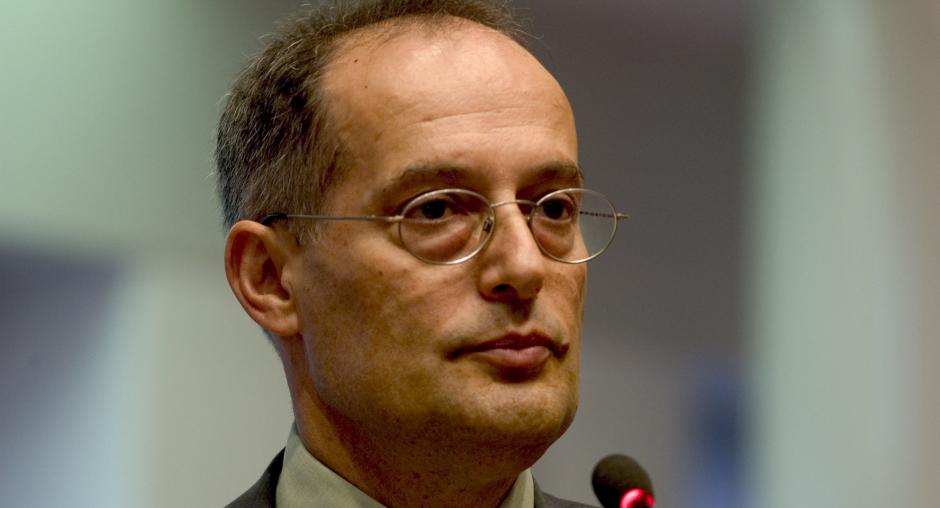OSCE media freedom representative asks Hague Tribunal to release Croatian journalist

VIENNA, 11 October 2005 - The OSCE Representative on Freedom of the Media, Miklos Haraszti, has asked the International Criminal Tribunal for the former Yugoslavia (ICTY) to release Croatian journalist Josip Jovic.
Jovic, the former editor-in-chief of Slobodna Dalmacija, was arrested on 6 October by Croatian police, acting on a 28 September arrest warrant issued by the Tribunal, after he failed to appear in court.
In a letter addressed to Tribunal President, Theodor Meron, Haraszti raised the cases of Jovic and four other Croatian journalists who have been recently indicted for contempt of court, consisting of publishing a classified testimony and revealing the name of a protected witness during the Prosecutor v. Tihomir Blaskic case.
The protected witness is a high-ranking Croatian politician.
Under Rule 77 of the Tribunal's rules of procedure and evidence, the five journalists can be sentenced up to seven years in prison and fined up to 100,000 Euros.
Haraszti also asked the Tribunal to change its rules dealing with contempt of court so that internationally acknowledged principles of press freedom are upheld.
"I have full respect for the institution of the protected witness," wrote the OSCE Representative.
"However, I believe that the ICTY should operate in accordance with the principles of freedom of the press and, as a result, apply the same safeguards in its procedures that are usually expected in national jurisdictions. In particular, I believe the ICTY should respect the public's right to know, and its interest in an uninhibited debate about past crimes and present leaders."
The OSCE Representative said that according to the case law of the European Court of Human Rights and the judicial practices of many democracies, imprisonment of a journalist for dissemination of classified information is always disproportionate punishment, and its chilling effect hinders unconstrained debate of public issues.
"In any democracy the fact that a leading politician had testified in a court of law would be of considerable public interest, and therefore a natural subject for reporting. I hope that this simple truth is taken into account when adjudicating the journalists' cases," added Haraszti.
Haraszti asked the Tribunal President to amend Rule 77 of the Tribunal's Rules of Procedure and Evidence that deals with contempt, so that it would only apply to those officials who have actually leaked confidential information.
